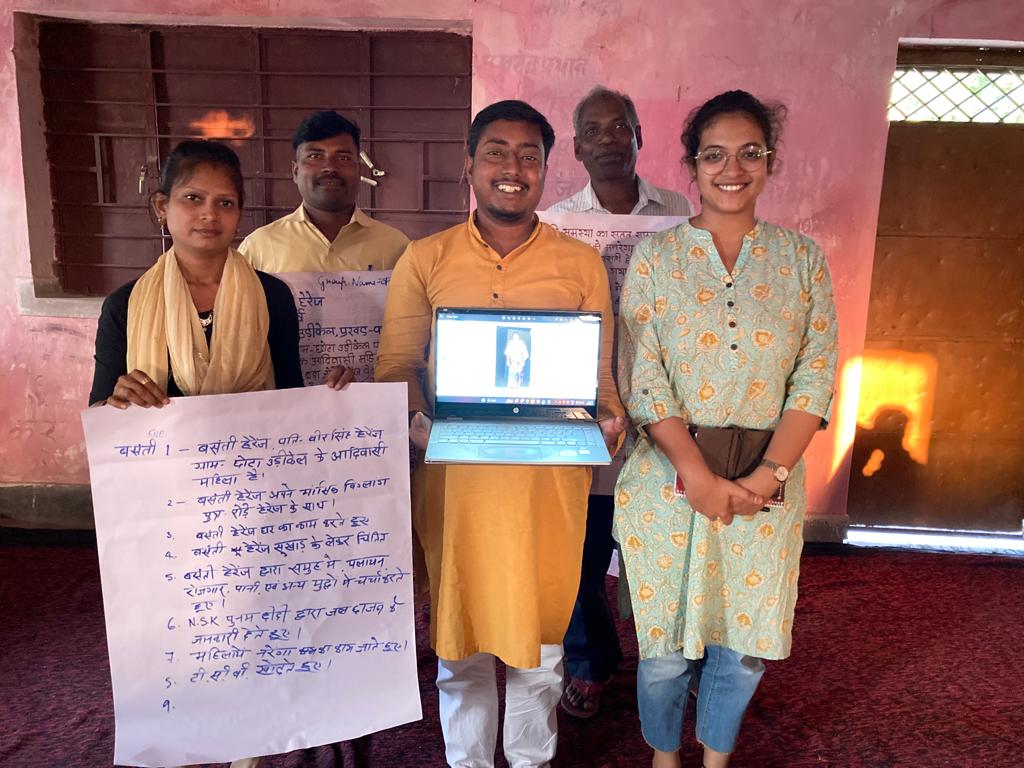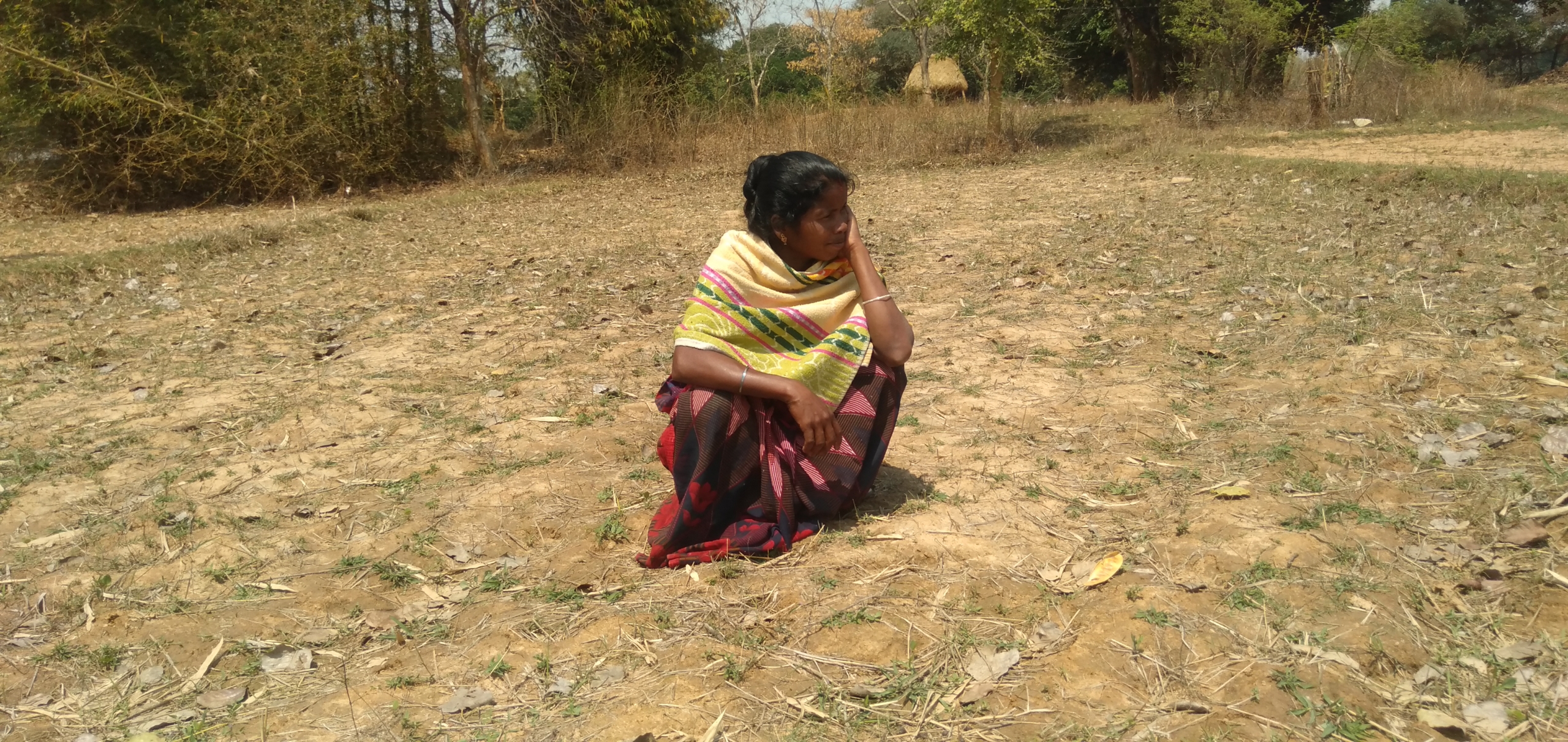All 72 families of Chota Udeekal village in Khunti district (Jharkhand) have no other option than practicing only rain-fed agriculture. After the end of monsoon, the men of the village migrate. It is only the women who are left behind. The burden to raise the children, ensuring their education, care of the elderly, managing livestock, nursing the sick and handling the finances completely rests on their shoulders.
Seasonal Migration by men, a burden for wives
Basanti Haerenj and her husband Bir Singh share a beautiful bond. Quite often when he is not around which is generally for a minimum of six months a year, she feels extremely “desolated.” Having to manage all the chores alone, she misses him desperately.
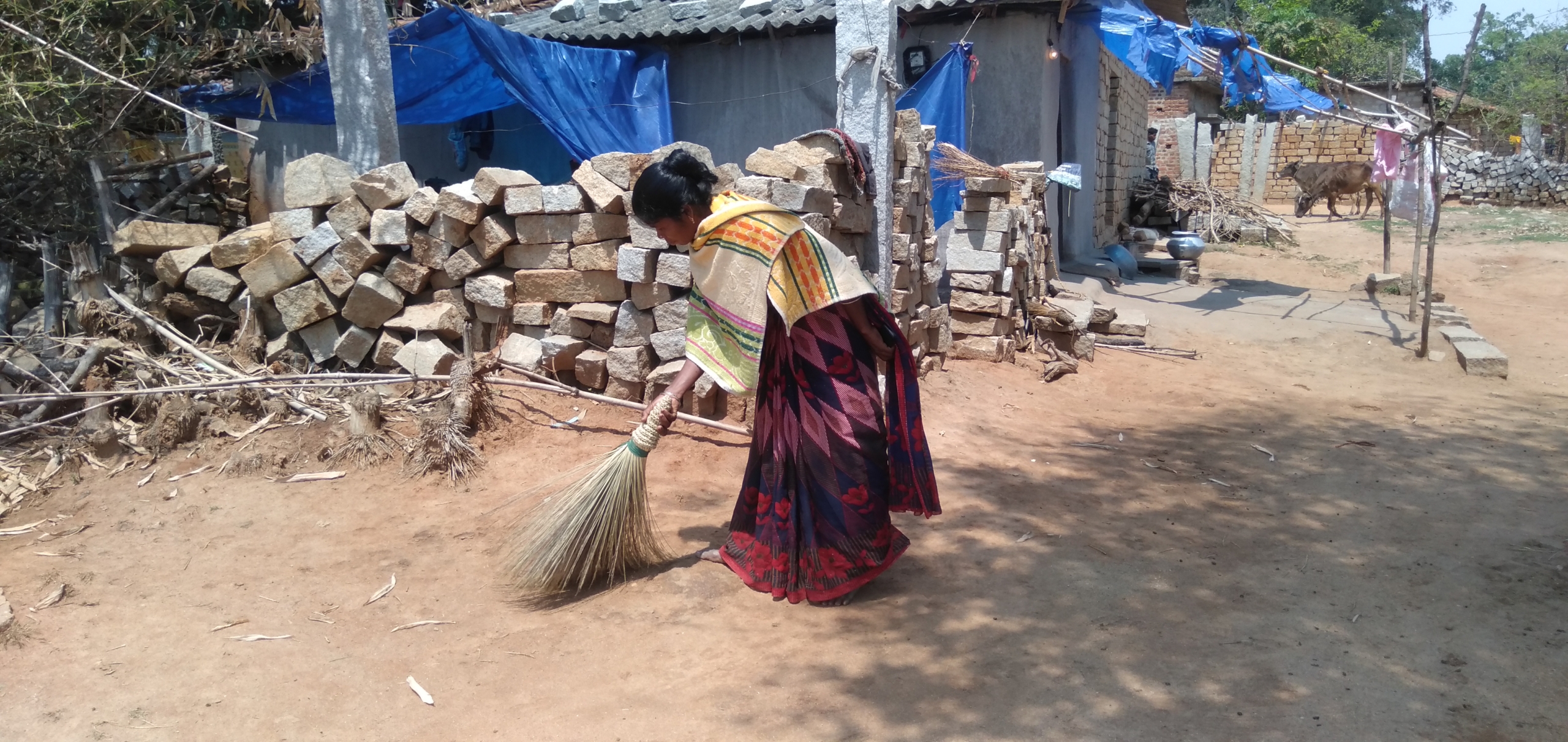
“How can I be happy when my husband is working hundreds of miles from me, leaving behind his home here. And who should I go to, to share my difficulties and issues? I don’t even tell him half of the problems because he will start worrying about us. But us women, we have to bear a lot more. Sometimes I wonder how nature created women to be so powerful and resilient,” says 36-year-old Basanti, a mother of three kids.
Basanti’s youngest child is differently abled and her 15-year-old daughter met with an accident a year ago. Due to their financial inability to provide proper medical treatment at the right time, the girl has developed a limp in one of the legs. Basanti is very concerned with handling the situation all by herself.
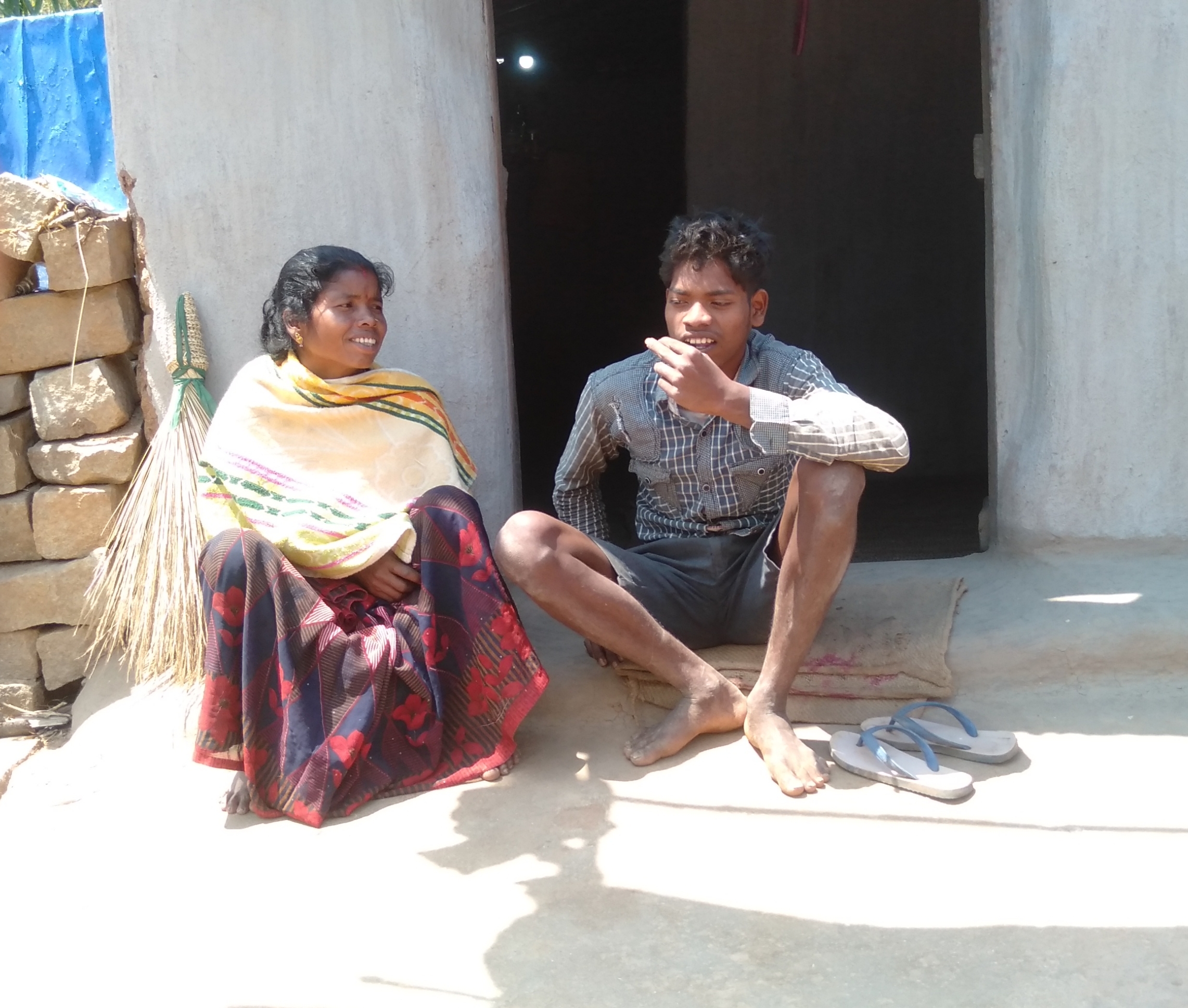
This is not just the story of Basanti alone but resonates the sentiments of many tribal women of this region who have to manage everything from farm to food on their plates. Without the men migrating to different parts of India, the seasonal income from monsoon crops will not be sufficient for even three-square meals a day.
“It aches to hear that my husband has to work non-stop for an 8-10 hour of shift and earning Rs 350-400 per day, when we have our own farm which is laying barren. We don’t have enough water during summers to cultivate crops,” she says.
Citizen Helpdesk gives confidence, local resource accessibility to women
With the launch of the ‘Zero Hunger Panchayat’ Programme a year ago, Poonam Kumari – a Nagarik Sahayata Kendra (citizen helpdesk) fellow – started visiting the Basanti’s village and attended Self-Help Group meetings regularly. Poonam as part of the helpdesk ensures an enabling environment and bridging service accessibility gaps between government schemes and supporting vulnerable people.
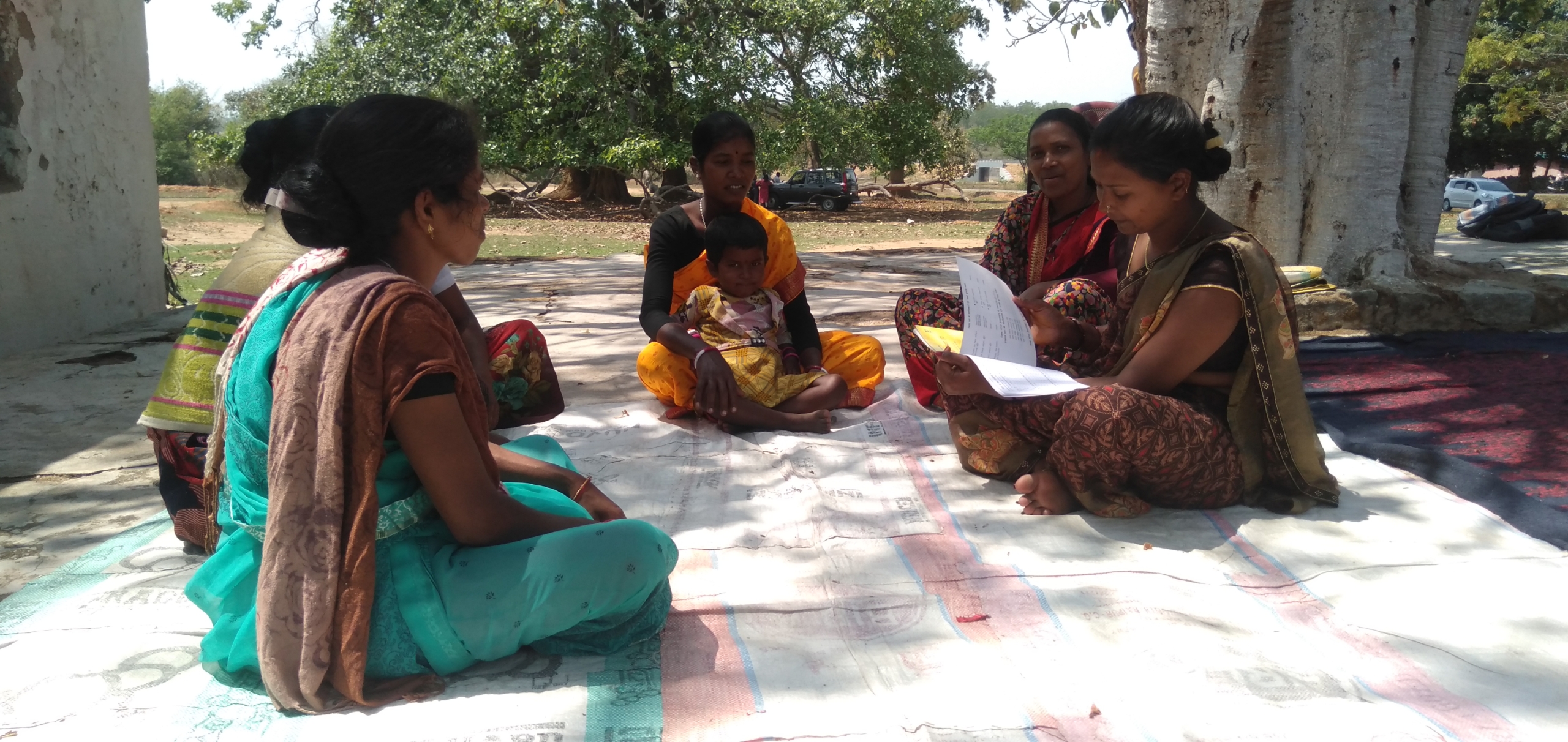
Most vulnerable rural and tribal households do not come forward to avail government programmes because they fear incompetency in filing paperwork or procedural complexities due to digitalization and illiteracy. A lot many marginalized people, till today, have not availedtheir monthly pension income, widow schemes or disability benefits and continue to live in poverty conditions.
“Seasonal migration was one of the major issues raised in the meetings. When I dug deeper into the reasons triggering this practice, I understood that unavailability of water for irrigation purposes for the rest of the year and consequent dearth of livelihood options were the main causes,” says Poonam.
To address the issue sustainably, Poonam introduced the community to the concept of Trench-Cum-Bunds (TCBs) as a part of Integrated Natural Resource Management and encouraged women to mobilize the demand via the Gram Sabha. With regular discussions, construction of TCBs under the financial aegis of MGNREGS (Government’s minimum work pay guarantee scheme) was approved for the vulnerable households.
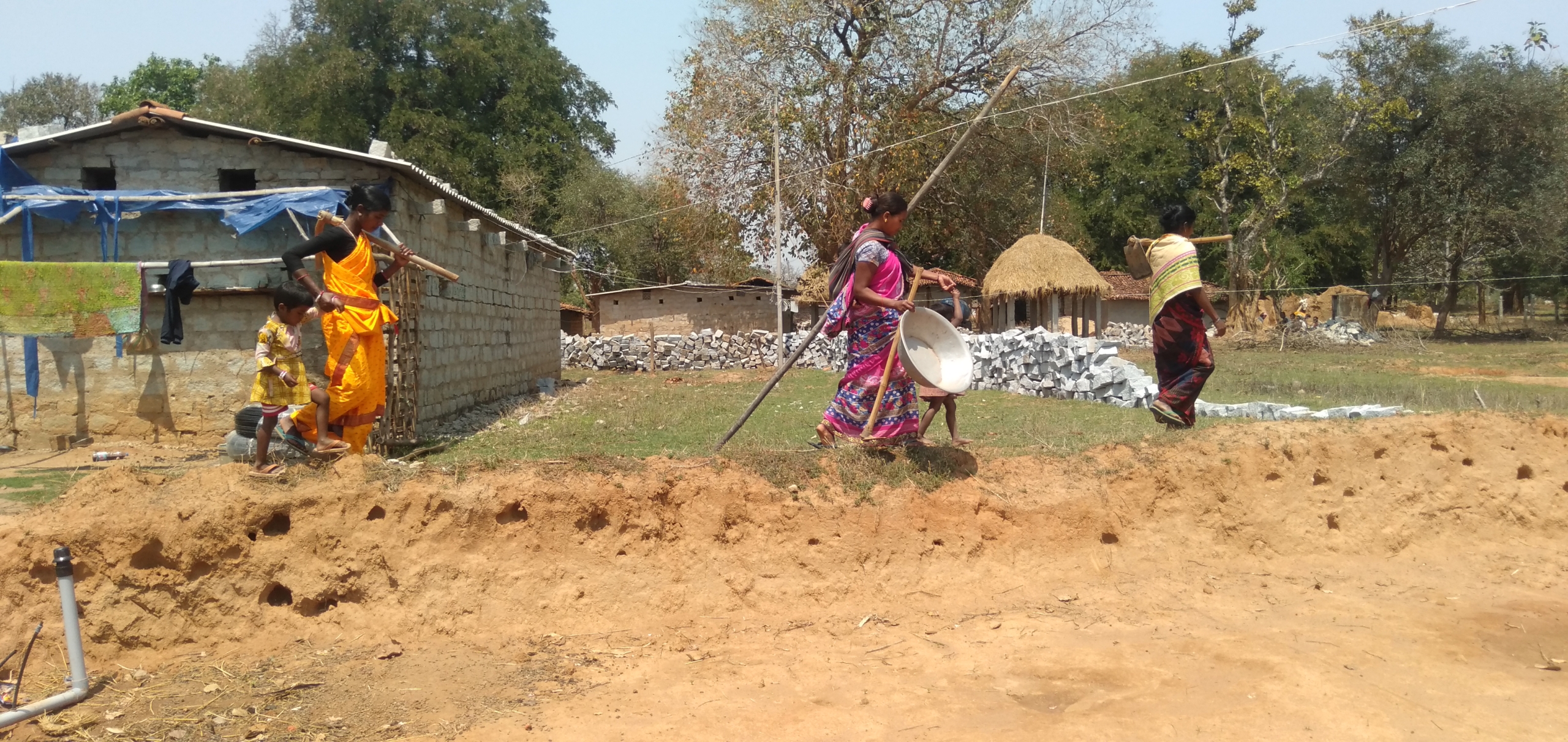
Basanti too constructed bunds on her two acres of land. Trench-cum-bund are a traditional rainwater harvesting system to improve agriculture productivity in dry lands and retain moisture level of soil. Since Jharkhand is located on a very dry and arid Plateau of Chota Nagpur, the system proves very efficient.
“In the past one year, all of us community members have worked very hard in unity. All of the women collectively planned and selected land for construction of TCB and started the construction work under MGNREGA,” shares Basanti.
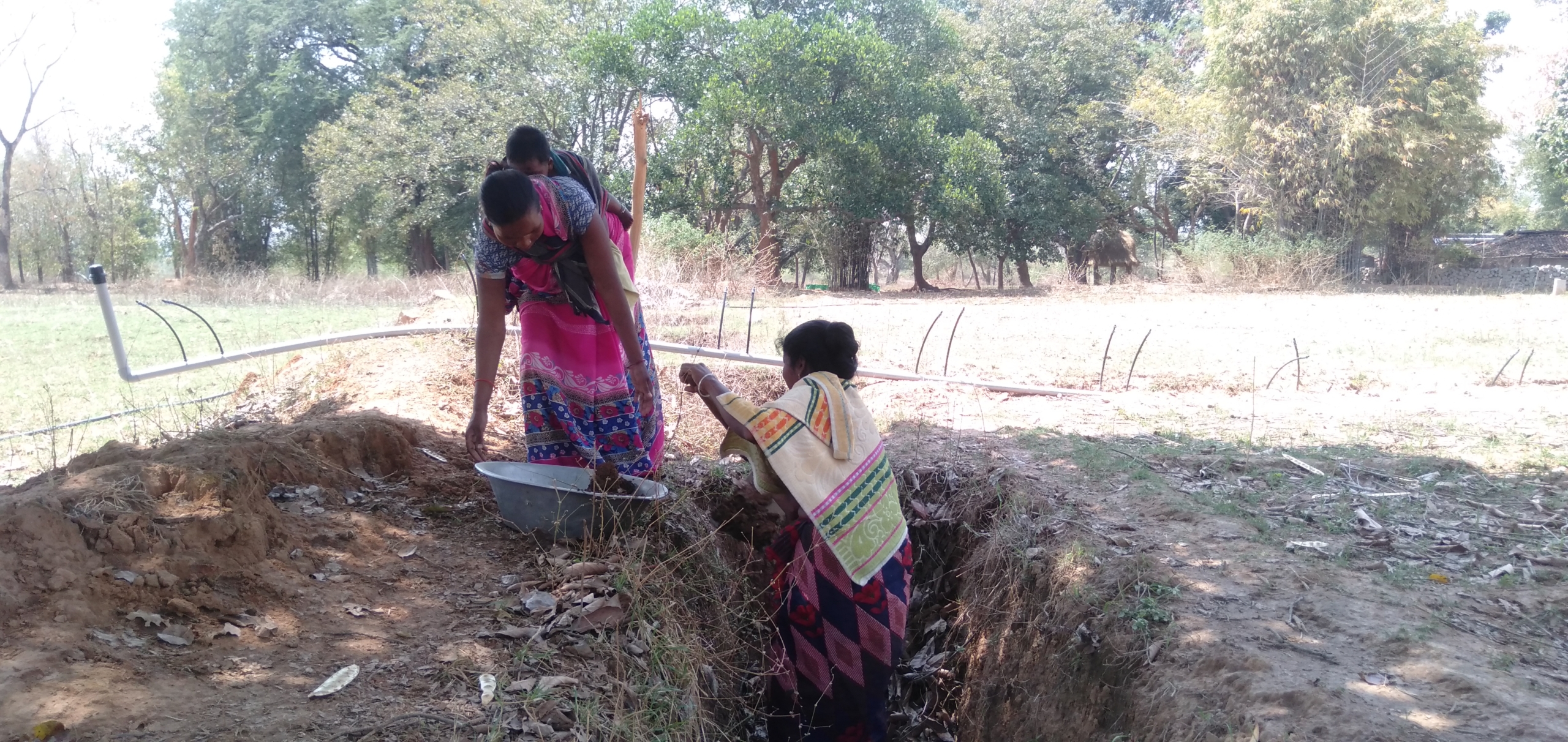
The results: This year, Basanti’s well has not gone dry during the summer months. Community members have come to understand the importance of Integrated Natural Resource Management Planning and have decided to continue working from Ridge to Valley this year as well.
“A lot of people have dared to invested in Rabi and summer crop this time. I am planning to cultivate summer crop next year onwards. I envisage a mango orchard near my well,” says Basanti.
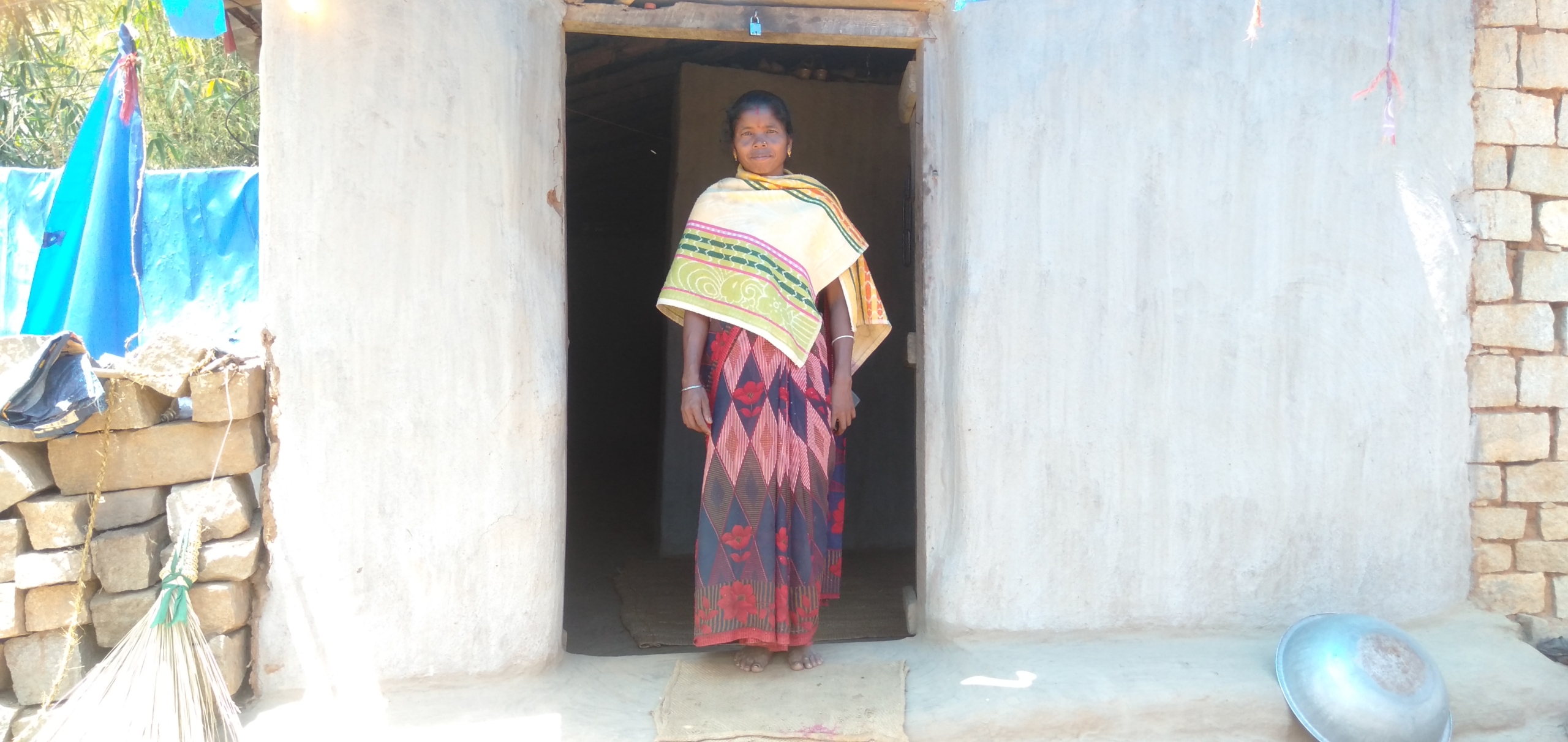
With hope in her eyes she says, “Who needs to leave their home and go to the foreign land if there are enough livelihood opportunities locally available. If we are able to practice three cycles of agriculture, we will make enough to live a dignified life. We can easily earn Rs 800 – 1000 each day by just selling our produce,” says Basanti.
——————-
About Zero Hunger Panchayat Project
The project is planned in one of the most backward of Indian states Jharkhand, with an estimated population of 36.4 million and 39.1 per cent people living below the poverty line (BPL). Both state and central governments are running several programmes and safety nets to address poverty, hunger and malnutrition. However, vulnerable rural households, particularly Dalits (lower castes), Adivasis (tribals) and women in the selected project districts are unable to access these programmes due to several reasons such as lack of information and awareness on rights and entitlements, lack of technical skills to participate in village plans, procedural complexities due to digitalization and illiteracy. There is a huge gap between citizens and the administration that needs to be bridged. Therefore, it requires the promotion of an enabling environment, which shall be created through Nagarik Sahayata Kendras or Citizen Helpdesk aimed at ensuring government accountability and supporting vulnerable people to access their rights and entitlements by bridging the service accessibility gaps
This Story was interviewed, documented and written by Team Kathakar during a Storytelling and Photography training in Ranchi.
From Left to Right: Saira Bano (Pradan), Shrawan Kumar (MAA), Anup Das (Pradan), James Herenz (MAA) and Saras Gandhi (Pradan)
Edited by: Isha Banerjee | WHH India Communications Officer
